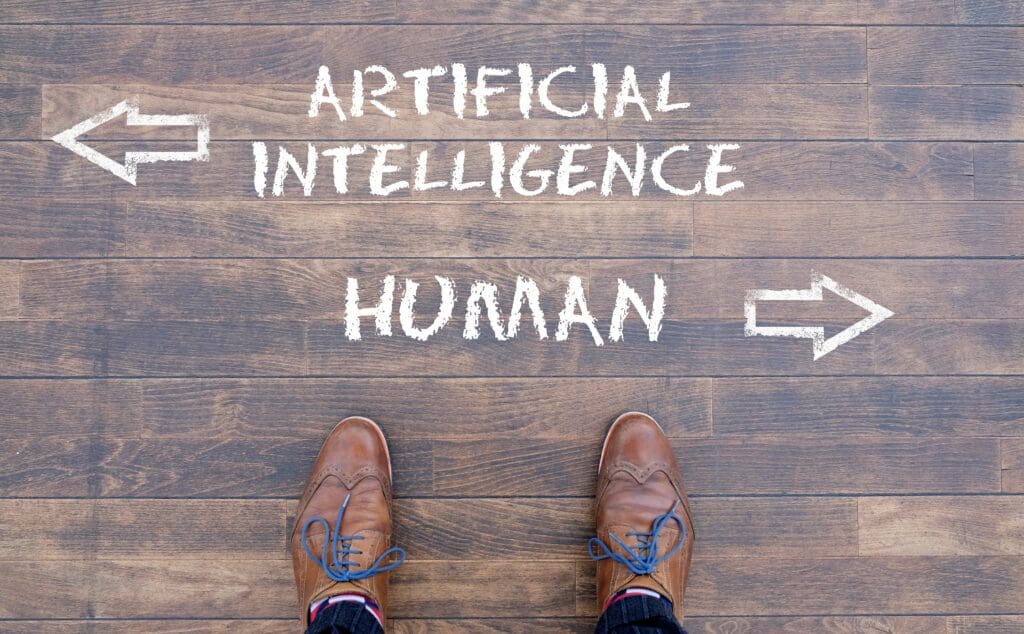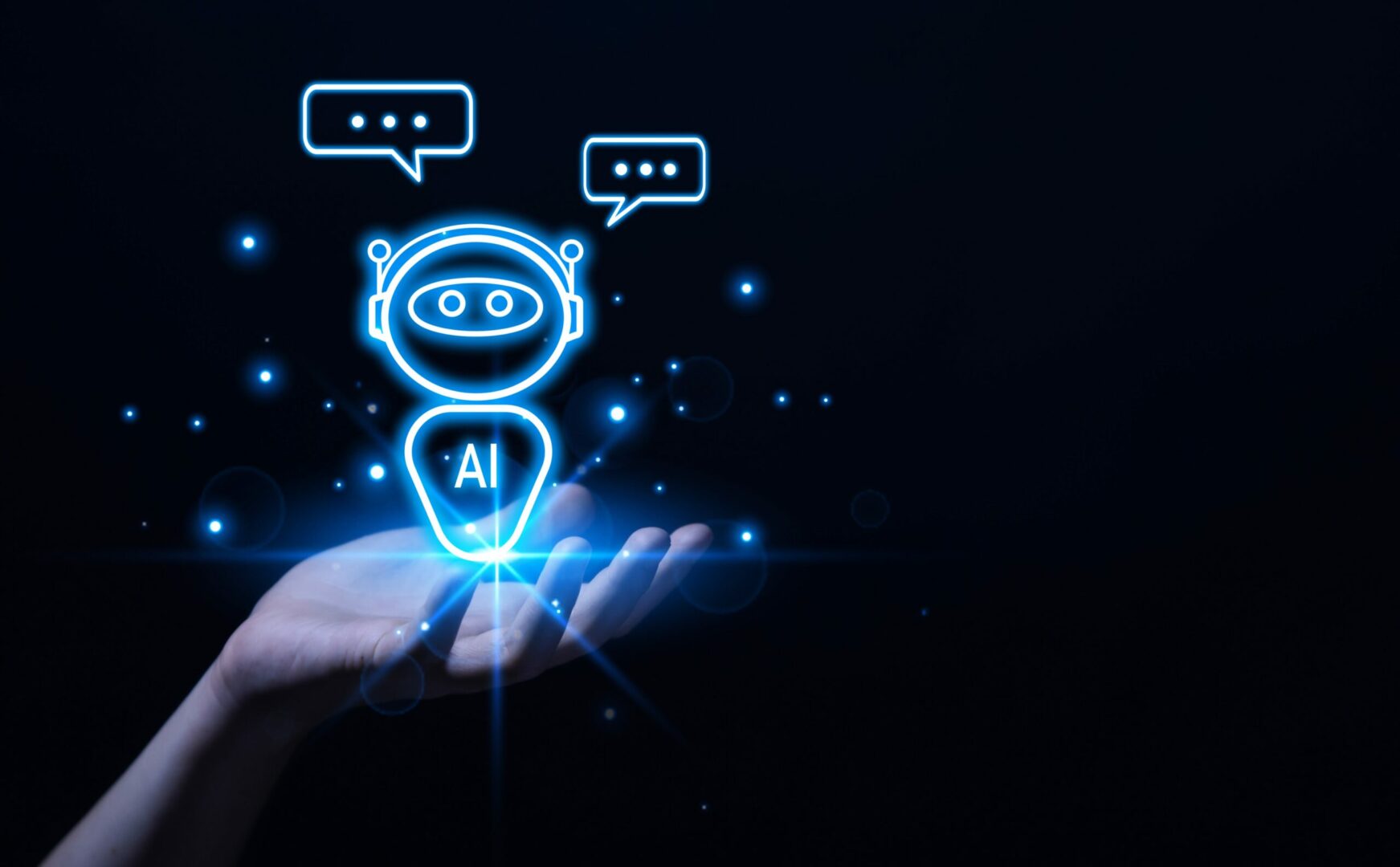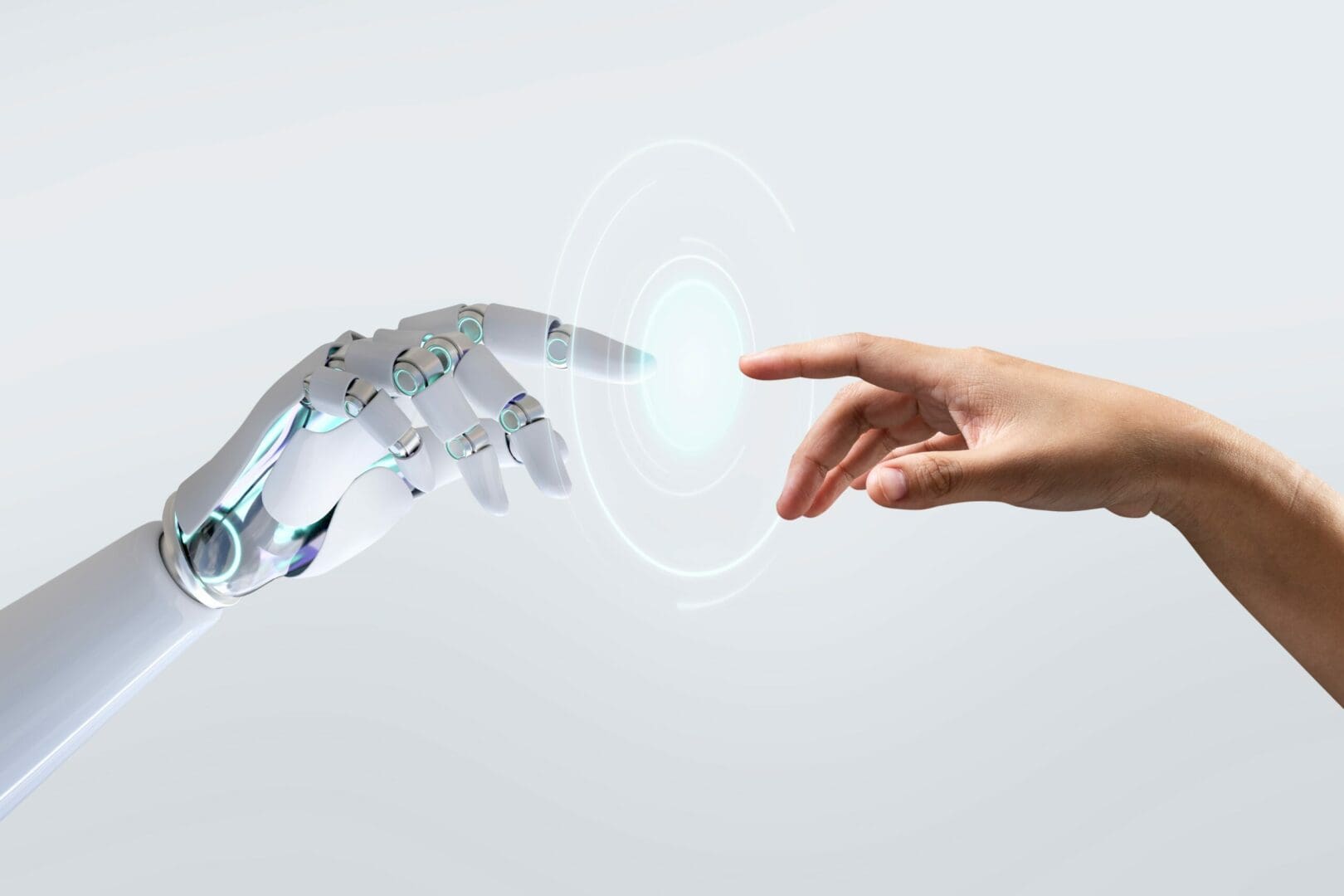The impact of Artificial Intelligence (AI) on our lives is profound and far-reaching across various domains. In recent years, AI has penetrated numerous industries and significantly influenced their day-to-day operations. So, how does AI influence our lives? Here are all the answers.
Impact of AI on Healthcare
- Medical diagnosis: AI algorithms have the capability to analyze vast amounts of medical data, including medical records, lab results, and imaging scans, assisting healthcare professionals in making accurate and efficient diagnoses. This helps in early detection of diseases and, of course, saving lives.
- Personalized treatment: Artificial intelligence enables the development of personalized treatment plans. By analyzing large datasets and considering factors like genetic information, medical history, and lifestyle, AI algorithms can identify the most effective treatments and predict treatment outcomes. This aids healthcare professionals in making informed decisions and providing tailored treatments.
- Development of new drugs: AI revolutionizes the process of developing new drugs. Machine learning can sift through extensive scientific literature, research papers, and trial data to identify potential candidates for new drugs.
- Remote monitoring: AI-powered technological devices allow remote patient monitoring, enabling healthcare professionals to track patients’ vital signs and health parameters in real-time. This technology is especially beneficial for patients with chronic conditions that require continuous monitoring. AI algorithms can analyze collected data and alert healthcare professionals about any potential health risks or anomalies, allowing time efficient interventions and reduction of hospitalizations.
Overall, artificial intelligence significantly enhances healthcare by enabling more precise diagnoses, personalized treatments, accelerating drug development, and facilitating remote monitoring, to ultimately improving patient care and outcomes.
Impact of AI on Economics
- Cost savings: Artificial intelligence can reduce business costs through process automation, diminishing the need for human labor. By replacing manual work with AI automation, organizations can save on labor costs, minimize errors, and optimize resource allocation.
- Innovation: AI fosters innovation by enabling businesses to develop new products, services, and business models. AI-powered technologies can create entirely new markets and disrupt traditional industries.
- Decision-making: AI-powered technologies provide access for organizations to large amounts of data and insights that lead to precise decision-making. AI algorithms can analyze data, identify patterns, and generate crucial insights to support strategic decision-making.
Impact of AI on Education
- Personalized learning: Artificial intelligence allows for personalized learning experiences by analyzing student data. AI algorithms can assess student performance, identify strengths and weaknesses, and tailor learning plans accordingly. This personalized approach improves engagement, enhances learning outcomes, and accommodates different learning styles.
- Smart learning systems: AI-powered learning systems provide students with personalized support and feedback. These systems can simulate one-on-one tutoring by adapting to individual student needs, answering questions, and providing explanations. Smart tutoring systems can identify knowledge gaps, track progress, and offer targeted interventions, making learning more effective and efficient.
- Smart feedback: Artificial intelligence can automate the grading process, saving time for educators and providing faster feedback to students. Machine learning algorithms can analyze and provide objective and consistent grading. Automated feedback can help students understand their mistakes and areas where they need improvement.
- Educational content generation: AI-powered technologies can generate educational content such as lesson plans, quizzes, and teaching materials. AI algorithms can analyze vast educational resources, create relevant content, and customize it for specific learning objectives.
- Language learning: AI-driven language learning platforms use natural language processing algorithms and machine learning to assist students in acquiring languages. These platforms provide pronunciation feedback, assist with vocabulary acquisition, and facilitate communication and collaboration among students from different backgrounds.
Impact of AI on Transportation
- Autonomous vehicles: AI plays a crucial role in the development and operation of autonomous vehicles. AI algorithms enable vehicles to perceive their surroundings, analyze sensor data, and make real-time decisions. Autonomous vehicles have the potential to enhance safety, reduce traffic congestion, and save on fuel and costs.
- Traffic efficiency: AI-powered systems can optimize traffic flow and manage congestion. AI algorithms can analyze real-time traffic data, including information from cameras, sensors, and GPS devices, to time traffic lights, route vehicles dynamically, and manage traffic patterns efficiently.
Impact of AI on Customer Service
- Chatbots: AI-powered chatbots and virtual assistants provide quick customer support. These AI systems can understand and respond to customer queries, provide information, and assist with common issues. Chatbots can handle high volumes of customer interactions simultaneously, ensuring fast and efficient responses and allowing human customer service representatives to focus on more complex tasks.
- Personalized Recommendations: AI algorithms analyze customer data, including purchase history, browsing behavior, and preferences, to provide personalized recommendations and offers. AI-powered systems can tailor products, content, and promotions to customers, enhancing customer engagement and satisfaction.
- Voice Assistants: AI-powered voice assistants, like Amazon’s Alexa or Apple’s Siri, alter customer service through voice interactions. Voice assistants can perform tasks such as answering questions, placing orders, or providing information, offering a hands-free customer experience and more.
Impact of AI on Commerce
- Customer Experience: AI-driven chatbots and virtual assistants offer personalized and immediate customer support by answering questions, addressing concerns, and recommending products. AI algorithms analyze customer preferences and behaviors to offer tailored shopping experiences, personalized product suggestions, and customized deals.
- Demand Forecasting: AI algorithms can analyze vast amounts of data, including historical sales data and market trends, to accurately predict demand. Businesses can utilize this information to optimize inventory management, reduce excess stock, leading to improved profitability and customer satisfaction.
- Price Optimization: AI-based pricing solutions analyze market dynamics, competitor pricing, demand fluctuations, and other factors to optimize pricing strategies. This enables businesses to maximize revenue, increase competitiveness, and tailor pricing to customer preferences.
- Visual Search Systems: AI-powered visual search technology allows customers to search for products using images rather than text. AI algorithms analyze images to identify products and find visually similar items in retailer catalogs.
- Security: Artificial intelligence can analyze large volumes of transaction data and behavior to identify patterns and anomalies indicative of fraudulent activities. AI-driven fraud detection systems can flag suspicious transactions, minimize financial losses for businesses, and protect customer data.
- Personalized Marketing: Artificial intelligence enables businesses to create personalized marketing campaigns based on customer preferences. By analyzing customer data, AI algorithms can deliver targeted ads, personalized offers, and relevant content.
Impact of AI on Cybersecurity
- Threat Detection: AI algorithms can analyze vast amounts of network data, security events, and user behavior to identify patterns indicating cyber threats. AI-powered threat detection systems can identify threats such as malicious software, phishing attacks, and insider threats in real-time, allowing organizations to rapidly respond to potential cyber events.
- Vulnerability Assessment: AI-powered tools can scan networks and systems to identify potential weak points for cyber-attacks. These tools can analyze code, network topologies, and configurations to identify weaknesses and provide recommendations for remediation. AI-based vulnerability assessments help organizations to proactively address potential security gaps.
Impact of AI on Agriculture
- Automated Equipment and Robotics: AI-powered robotics and automated equipment transform agricultural processes. Robots equipped with AI technologies can perform tasks like seeding, planting, harvesting, and weed control with precision and efficiency, reducing labor costs, increasing productivity, and minimizing human errors.
- Yield Prediction: AI algorithms can analyze historical and current data to predict crop yield. By considering factors like weather and soil conditions, AI can provide accurate yield forecasts, enabling farmers to make informed decisions regarding production planning, crop selection, and marketing strategies.
- Livestock Management: AI technologies, such as computer vision and various sensors, can monitor and analyze the behavior, health, and productivity of livestock. AI systems can identify signs of distress, monitor feeding patterns and activity to provide early detection of diseases. This helps farmers improve animal welfare, enhance cultivation strategies, and increase productivity.
In summary, artificial intelligence has undoubtedly had a significant impact on a wide range of industries. Efficient utilization of this technology can lead to substantial cost savings. However, it’s important to note that AI can also displace jobs, potentially leading to unemployment, so its usage should be balanced to take into account human capital, which is crucial.

What Do We Do at Infinity Labs R&D?
Infinity Labs R&D, a research and development company, developed a career path about a decade ago that begins with training at our expense for those who successfully complete the program, and ends with development jobs at one of the company’s clients. The process is based on a learning methodology developed by us, Infinity Mentored Social Learning (IMSL) which has been used to successfully integrate about 2,000 graduates in positions that usually require 2-3 years of experience. With over 200 successful groups in Software Development, Cyber, DevOps and AI, the program has collaborated with over 300 high-tech, defense and startup companies in Israel who return to recruit from us regularly.
Our business model is based on partnership, where everyone benefits:
You – do not pay for the training program, during which you will be interviewed for jobs with one of our clients.
We – finance your training program and afterwards when you start working for one of our clients, this is how we get a return on our investment in the process.
Customers – benefit from Infinity Labs R&D graduates who provide professional and high-quality solutions and stay for the long term.



